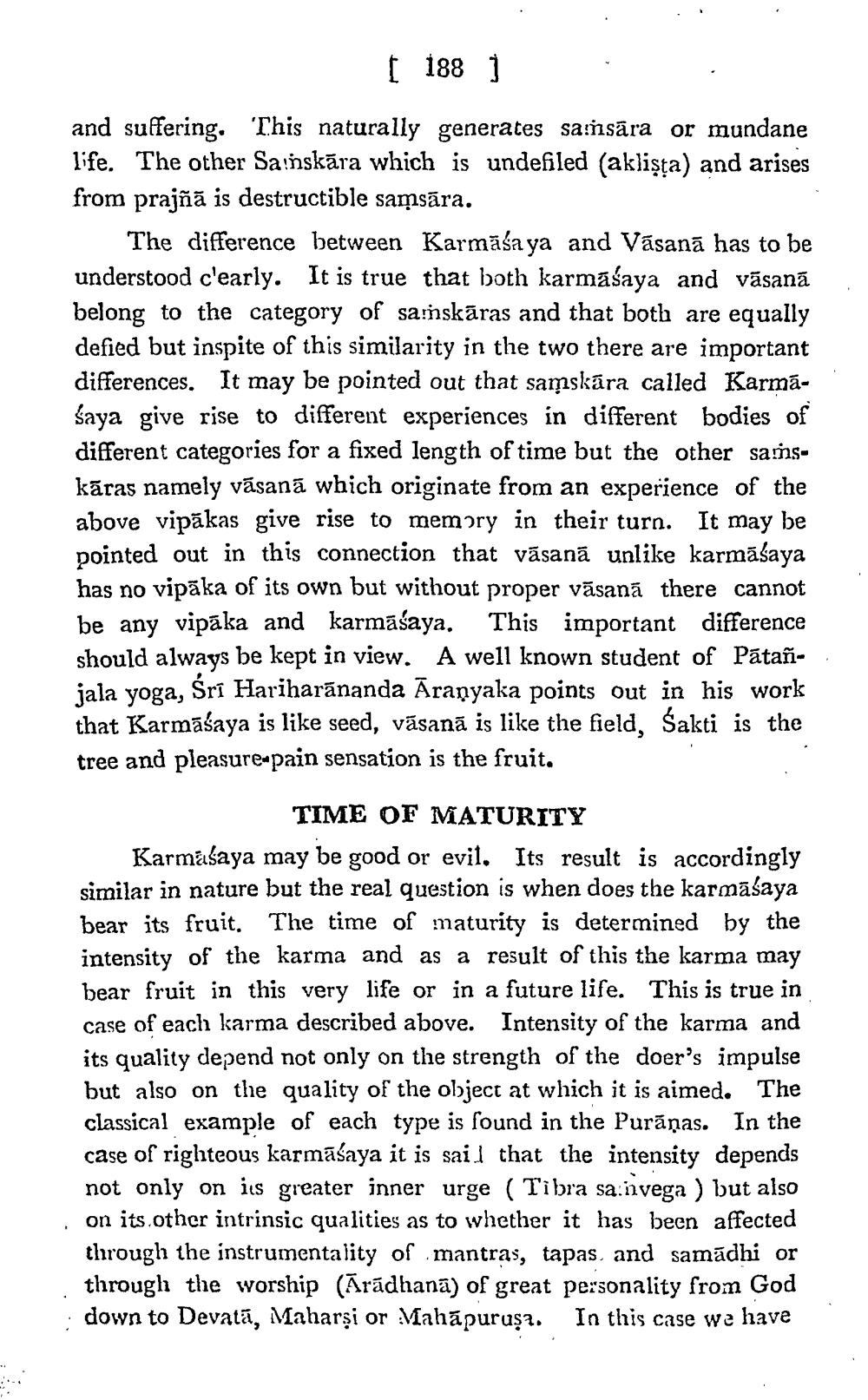________________
[ 188 ) and suffering. This naturally generates sainsāra or mundane life. The other Sainskāra which is undefiled (aklişta) and arises from prajñā is destructible samsāra.
The difference between Karmāśa ya and Vásanā has to be understood clearly. It is true that both karmaśaya and vāsanā belong to the category of sainskāras and that both are equally defied but inspite of this similarity in the two there are important differences. It may be pointed out that saņskāra called Karmasaya give rise to different experiences in different bodies of different categories for a fixed length of time but the other sanskāras namely vāsanā which originate from an experience of the above vipākas give rise to memory in their turn. It may be pointed out in this connection that vāsanā unlike karmāsaya has no vipāka of its own but without proper vāsanā there cannot be any vipāka and karmāśaya. This important difference should always be kept in view. A well known student of Patañjala yoga, Śrí Hariharānanda Aranyaka points out in his work that Karmāsaya is like seed, vāsanā is like the field, Sakti is the tree and pleasure-pain sensation is the fruit,
TIME OF MATURITY Karmaśaya may be good or evil. Its result is accordingly similar in nature but the real question is when does the karmāśaya bear its fruit. The time of maturity is determined by the intensity of the karma and as a result of this the karma may bear fruit in this very life or in a future life. This is true in case of each karma described above. Intensity of the karma and its quality depend not only on the strength of the doer's impulse but also on the quality of the object at which it is aimed. The classical example of each type is found in the Purāņas. In the case of righteous karmāśaya it is said that the intensity depends not only on its greater inner urge ( Tibra sa.nvega ) but also on its.other intrinsic qualities as to whether it has been affected through the instrumentality of mantras, tapas, and samadhi or
through the worship (Ārādhana) of great personality from God : down to Devata, Maharşi or Mahāpurușz. In this case we have




